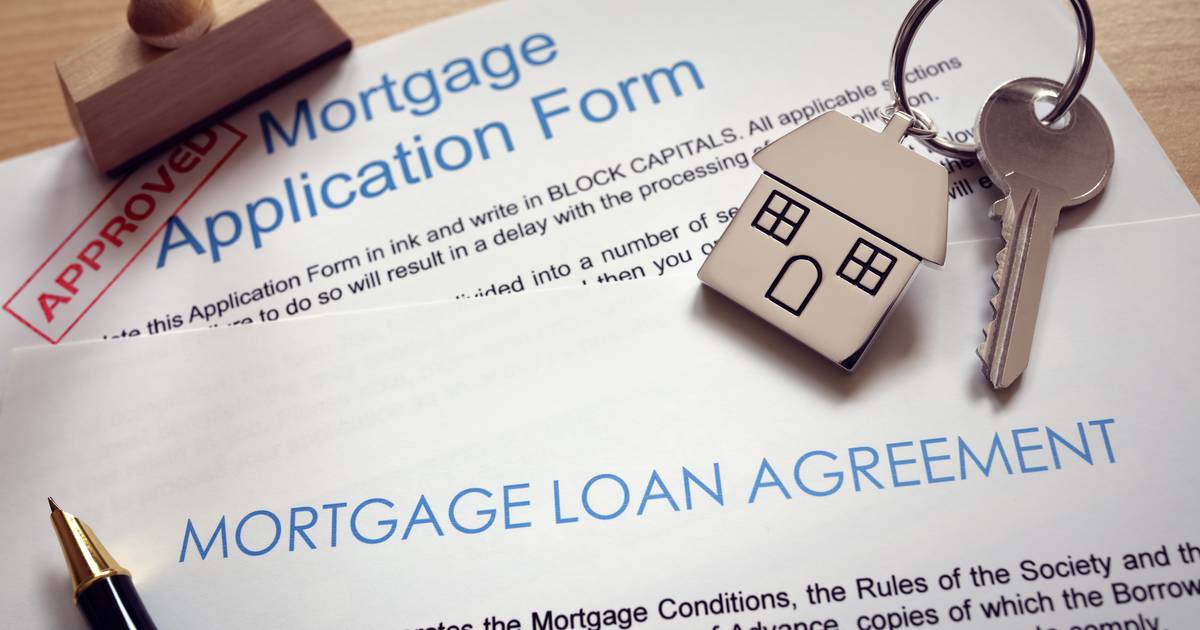My partner and I are looking into the possibility of moving to Ireland from the UK. I came across an article you wrote last year about a woman looking to move back to Ireland from Canada and was wondering if you had any advice on getting a mortgage in Ireland while living in the UK -United.
I am from the UK and my partner is Irish. We lived there for a short time (10 months) six years ago. We have a mortgage on a house that we own in the UK and ideally what I would like to do is take money out of that house and use it as a deposit on a house in Ireland that we we can move in.
My partner is on maternity pay which is due to end soon and I work full time. I have a job offer from a company in Ireland. The only thing holding us back is the living conditions.
Mr. GB, United Kingdom
Irish banks are good at telling everyone they are open for business. Most have active marketing campaigns on the subject. Several letters on my desk regarding creating new accounts and changing mortgages would suggest otherwise.
The truth is that banks are as, if not more, worried about the pressure of the cost of living and rising interest rates than anyone else. The fallout from imprudent lending before the financial crash of 14 years ago remains fresh in mind. Banks still have to deal with customers who are unable to service their loans – at least those whom they have not yet managed to offload at a loss into specialized funds. Restrictions on pay and bonuses – a bone of contention in the Irish banking sector – are still in place, even at banks which have officially repaid all the bailout funds they have received from the state.
All this to say that Irish banks are more risk averse today than they have been in living memory. They haven’t actually withdrawn mortgage products like some UK banks have done in the wake of Chancellor Kwasi Kwarteng’s recent disastrous mini-budget, but the candidates will recount ever more restrictive access to home loans, especially in non-bank lenders and tougher rules.
The first thing to do is to determine which mortgage product you are looking for. Are you looking for an expat loan, a mortgage to buy property in Ireland before moving here, or a more normal mortgage product once you have actually moved to the state?
From your letter, you appear to be in the market for an expat mortgage, securing the loan before you arrive in Ireland so that you can purchase a property to move into on arrival.
Two of the banks that claimed to be in the expatriate lending business – Ulster Bank and KBC – are closing their Irish operations themselves, knocking them out of the picture. And Bank of Ireland, the biggest national bank, pulled out of the expatriate mortgage market a few years ago.
That effectively leaves AIB and Permanent TSB, and I’m guessing Permanent TSB only handles applications from Eurozone countries, which also excludes you from the sterling zone. So it looks like you only have one choice.
You might wonder if you should wait until you arrive in Ireland to apply for a mortgage as a resident. Why?
First of all, it looks like you’ll need a bigger deposit if you apply for an expat mortgage – up to 35%. Then there is the interest rate. You may be charged a higher mortgage interest rate in line with those that apply on buy-to-let/investment loans. This will make a noticeable difference in your payouts.
Of course, you can switch to a term homeownership rate, but then you face the ongoing risk of rising interest rates.
It is also possible that when assessing your ability to repay an Irish expat loan, the lender will take into consideration the cost of the Irish mortgage and the mortgage on your existing home in the UK. And they may not take into account the rent you receive on the property. They certainly won’t be too interested in knowing if you’ve lived here before for such a short time, in terms of giving you an edge on the credit side of the ledger.
And then there’s the stress-testing exercise now common to all home loans. In the current ECB interest rate environment, where rates are rising by up to three-quarters of a percentage point at successive ECB meetings, it is hardly surprising that lenders appear to be stress testing above the two percentage point margin on the in-force variable mortgage rates that used to apply. Additionally, I understand that there will also be a separate stress test exercise performed on the GBP/EUR exchange rate to see what impact a large enough adverse swing would have on your earnings in Euro terms.
All in all, this makes an expat mortgage both expensive to manage and more difficult to access for income reasons.
If you are looking to secure an expat mortgage, it may be advisable to go through a broker, if only because they are more familiar with this niche product and may be better able to present your case in the most positive light, knowing what the lender(s) are looking for.
I have no personal experience of brokers operating in the expatriate mortgage business, but I suspect they include mortgage123.ie and a Waterford-based group called Topmortgages.ie.
The alternative is to wait until you arrive in Ireland and then apply for a standard resident mortgage.
The obvious downside here is that you will need to rent for an initial period while you search for a mortgage at a time when the rental market in Ireland is both expensive and has very limited availability.
In addition to this, lenders will not take the employment record or promise of employment of you or your partner in trust. If you are coming to Ireland to start a new job, it will take you between six and 12 months before you are allowed to take out a mortgage here. I’m told you’ll be able to process the mortgage application within that time to the drawdown point, although I wouldn’t even take that for granted.
Although they were willing to accommodate you through the mortgage approval process in anticipation of a future drawdown, the banks here are overwhelmed with trying to handle the large transfer of customers from Ulster Bank and from KBC initially to the three surviving national operators.
Anyway, this “probationary period” will certainly prevent you from moving into your own house for a while. This, in turn, will make it harder for sellers’ agents to see you as genuine interested parties in the properties you might view and hope to buy.
And all the time, interest rates are rising. That should definitely continue for next year’s guts, and possibly longer.
On the upside, the deposit requirement will drop to 20% on an Irish resident loan instead of the 35% you’ll need to provide for an expat loan. You will also be able to benefit from more competitive homeowner mortgage rates and you won’t have to deal with the monetary element of the stress testing scheme. This will make access to a loan easier and the cost of such a loan less expensive, provided that your job offers are in line with expectations.
You might also be able to get credit for the net rental income from your property in the UK against mortgage expenses there, although I can’t say for sure.
The bottom line is that there is no easy answer. The expatriate market is very limited and quite restrictive in what it will lend, and the alternative requires you to plan your house purchase in Ireland for a long time unless you can finance it entirely from your own financial resources.
Please send queries to Dominic Coyle, Q&A, The Irish Times, 24-28 Tara Street Dublin 2, or email [email protected]. This column is a reading service and is not intended to replace professional advice
#live #move #Ireland #apply #mortgage






